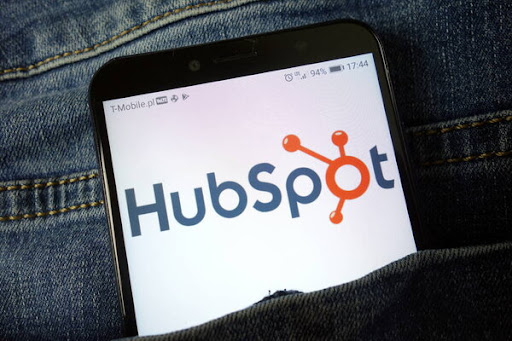Marketing is one of the biggest aspects of any business. In fact, the influence and use of no-code development tools and platforms extend beyond creating software. There are many things that businesses can do with these platforms, including marketing and business development. In fact, according to a report, “90% of no-code users think their company has been able to grow faster due to its no-code usage.”
The great news for everyone is that nobody needs to be an expert to build high-function marketing tools. Platforms are present everywhere over the web to help businesses and people perform marketing strategies. While many platforms integrate a lot of no-code software development, a smaller number are focused on marketing features.
If you’re looking for the best marketing tools and platforms, consider these no-code tools and platforms anybody can avail online:
Email marketing: Mailchimp
Mailchimp is one of the longest-known marketing tools online, with perhaps the most recognisable chimp logo as its central brand image. Many businesses have used Mailchimp to ensure that their products come across target users and audiences. Mailchimp is a powerful tool used by big names in the industry. If you’re familiar with the brands TED and Vimeo, these brands use Mailchimp for marketing without ever typing in a single line of code.
Features of Mailchimp
✔︎ Email marketing functions and tools that help businesses maximise email contacts for business development
✔︎ Predictive customer segmentation and analytics to find the right type of customer for the business
✔︎ Marketing automation functions and features to streamline processes and business operations
✔︎ Content creation and management tools to make the right type of content per target audience
Pros
- Mailchimp offers a generous package of functions even with their free account. Even with a user subscription plan that costs zero, users can maximise and explore more about email marketing.
- The platform continually expands and adds features even if it’s one of the most popular tools online. Mailchimp has steadily grown a loyal user base due to the value it brings to businesses and users.
- Mailchimp sports a very intuitive platform interface. It won’t be a challenge for first-time users to explore and use the platform.
- The focus on email marketing means that almost all tools and features are patterned after such a marketing strategy. Email marketers should not miss out on Mailchimp.
Steps on how to maximise Mailchimp
- All users should max out on the platform’s free plan to explore and create other systems and tools.
- Mailchimp requires a high sense of organisation, especially in handling contact lists. It’s best not to use this tool if you can’t put items in an order.
- Apply native commerce with Mailchimp’s email commerce functions for businesses that sell goods and services.
- Pay a subscription plan to use further help and support on the platform. Mailchimp is known for its excellent support from the team running the platform.
CRM: Hubspot

Hubspot is another no-code marketing platform for users. The brand started in 2005 and has constantly provided one of the most popular and reliable marketing services.
Hubspot focuses on delivering a superb customer experience through its Inbound Marketing, Sales and Service software. This no-code platform channels its services through different service platforms. The real power of Hubspot comes from using all platforms simultaneously.
Features of Hubspot
✔︎ Marketing Hub to help businesses grow, convert and increase business sales over time
✔︎ Sales Hub for sales management and high automation functions to keep owners focused on the business
✔︎ Service Hub serves as the customer service hub for businesses looking to manage customer concerns
✔︎ Operations Hub is the control area for all the other hubs of Hubspot and enables users to mix and match all preferred hub features and functions
Pros
- Hubspot has a simple interface for new users looking to outsource a lot of marketing and business operations work to another app.
- The platform has over 300 external application integrations depending on the user plan subscription.
- Customer support from the Hubspot team can help owners optimise marketing strategies.
- There is a new hub from Hubspot, meaning the team behind Hubspot constantly updates and adds necessary features to the existing platform.
Steps on how to maximise Hubspot
- Create a free account first and use the platform to determine when you will maximise the platform. Hubspot offers a free forever account that can already address many business marketing needs.
- Scale the business with the free plan first and gauge the capabilities of the no-code marketing platform according to your business needs.
- Utilise the Resources of Hubspot to learn more about the platform. These resources are free for everybody.
Hubspot has a website calculator to help users tally the total bill of potential hub bundles and promos. If you have decided to use a paid plan, visit the calculator site here.
Project Management: Airtable
Airtable is a no-code platform specialising in data collection, gathering and project management. With marketing, many businesses are bound to collect large amounts of data regarding customer information, goods and services, and overall operations.
The last thing any owner wants is to wipe out a database of essential leads and repeat clientele. Airtable acts as that platform that contains all information in one place.
Features of Airtable
✔︎ Airtable focuses on marketing functions, especially all the work rooted in keeping and managing marketing projects between people across teams
✔︎ Automation functions to keep all tasks functional with little to no hands-on technical support
✔︎ Hundreds of marketing management templates pre-made and built-in the platform, eliminating more grunt work for new users
✔︎ Resource Center to help users navigate and use the platform to its highest potential
Pros
- Airtable offers a free plan to its users, giving new business owners a chance to get a feel of the platform before committing to a subscription. It eliminates a lot of worries from people who are still canvassing for potential marketing tools to use.
- Airtable offers some of the most affordable pricing plans to its users. The first three-tier plans are $0, $10, and $20, respectively. Custom pricing happens when users contact the customer support team.
- There are extensive customisation options in Airtable. Users can modify many platform elements according to preference and personal style.
- Airtable is a reliable platform for marketing functions; Big names across industries such as Netflix, Buzzfeed, and Time Magazine use Airtable.
Steps on how to maximise Airtable
- Use the pre-made templates in the platform to help manage data for easier marketing operations in the business.
- It’s best to integrate external apps (if you have prior experience) and utilise the popular extensions in the platform like Jira, Formstack and Salesforce.
- Airtable has a Status webpage to display current platform status and recent incidents that affect the platform. Ensure that when you use the platform, it’s up and running, though based on the records, Airtable has 100% uptime for the past 90 days.
- Join the community of Airtable to get the latest topic discussions and fast answers to specific platform use inquiries.
Marketing automation: Adobe Marketo

Marketo is an Adobe brand specifically for marketing functions. The platform offers no-code features that allow users to create, automate and manage marketing strategies. The platform offers a wide range of marketing features and has helped many businesses grow through effective marketing tools and functions.
Marketo stands true to its original brand, Adobe and is used by big names in the industry such as Fujitsu, Roche and Panasonic.
Features of Marketo
✔︎ Marketo Engage helps businesses deliver exceptional demand marketing to grow any business
✔︎ Bizible is a more Business-to-Business focused marketing solution in no-code features
✔︎ Marketo offers AI solutions through its Adobe Experience Cloud, elevating marketing functions that provide high-growth results
✔︎ The no-code marketing platform offers solutions for marketing such as Lead Management, Digital Advertising and Mobile Marketing
Pros
- Marketo allows multiple integrations with external applications and platforms, providing a broader function for users with an experience on another marketing platform.
- Marketo doesn’t require training and background, allowing it to become a suitable no-code platform for beginners using no-code marketing for the first time.
- Marketo has broad access and functionalities from the Adobe brand and Suite. If you are used to these tools, Adobe offers a flexible and smooth transition toward Marketo.
- Marketo provides a lot of marketing tools, allowing users options for various types of marketing strategies. All it takes is for users to formulate a marketing method that works to level the sales in the business faster.
Steps on how to maximise Marketo
- Marketo provides solutions per topic segment and industry. Depending on the industry of the business, you can optimise marketing tools by selecting the use case or the sector the business belongs to, so you don’t need to start from scratch.
- Marketo classifies its tools according to Core Capabilities and Additional Capabilities. Use this to mix and match the different tools you want to try to create new marketing software, strategies and business development.
- Marketo has a community to allow users in topic discussions and query information. Search the Marketo Blog for official Marketo publications and the Developers Blog to know more about personal developer experiences from previous and current users.
- Contact the Sales Department to craft a subscription plan that fits the business needs. Customising plans is key to gaining and maximising the tools from Marketo that provide optimal work for your business.
E-commerce: Shopify

In the Age of the Internet, no business is ever complete without an official website in online spaces. Shopify is a no-code website builder that helps businesses, companies, and large corporations create seamless websites to bring their offered goods to the web. Shopify is more than just a web builder, though. This no-code platform allows users to track, maintain and manage executed marketing strategies on the website for optimal conversions and sales.
Features of Shopify
✔︎ Website builder with marketing tools to help web pages become more visible across the web
✔︎ Branding functions to help businesses stand out against thousands of other businesses in the same niche
✔︎ Marketing tools include email marketing and marketing automation for frequent execution of marketing strategies created in the no-code platform
✔︎ Marketing and website management tools to keep everything in order
Pros
- A no-code marketing platform is a straightforward tool that can help beginners with zero knowledge of website building and automation marketing.
- Shopify hosts around 3.9 million online stores; If you are worried about platform reliability and security to avoid long-term migration, Shopify is a platform that will continue to operate.
- Shopify offers affordable plans, perfect for all users on a budget or looking for price plans that work within business means.
- Higher subscription plans allow users to host up to 10 different online stores online.
Steps on how to maximise Shopify
- Shopify offers a “Start a free trial and enjoy 3 months of Shopify for $1/month on select plans—offer ends 08/25” sign-up link. For new users, take advantage of this sign-up link to build your store on a budget.
- Build various stores using one account to give more channels for users to see the online store. This also means that marketing strategies work well across different stores, providing more chances for conversions and sales.
- Sometimes, it’s necessary to get the help of a more experienced person that has relevant knowledge of your type of business. Shopify has a Shopify Experts Marketplace that allows users to get help from trusted professionals to scale the business.
- The no-code platform has integrations with other tools online. Connect and integrate other platforms such as online platforms, social media accounts and other spaces to bring the business to more target audiences.
Conclusion: Are no-code marketing tools worth investing in?
There’s a real art in knowing and developing marketing strategies through coded applications and software. It’s a skill that can help business owners in the long run. However, it’s notable that not all businesses have the time or the budget to keep large marketing teams to bring goods and services forward.
The rise in no-code marketing tools and platforms only means that the sector is bringing something to large companies and small business owners.
These tools provide affordable, less time-consuming, yet effective tools that generate revenue or profit for owners. It’s a good alternative compared to expensive dedicated teams that will create the next most lead-generating commercial videos or campaigns for your brand.






